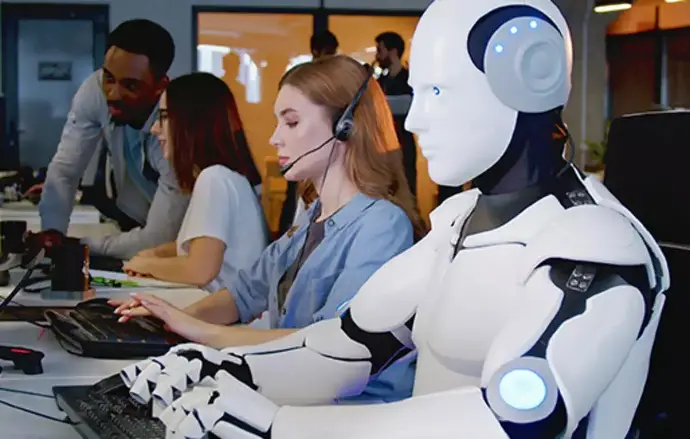The current impact of artificial intelligence on employment
One of the most significant developments in public exposure to AI technologies has been the introduction of ChatGPT. This new wave of technological change has allowed machine learning models to interact with people in the real environment, showcasing both their advantages and disadvantages.
According to the Future of Jobs Report, approximately 75% of companies surveyed plan to implement AI, which will result in high job turnover. A full 50% of organizations expect job growth, while 25% anticipate job losses.
AI has already played a role in the loss of more than 000 jobs last month, according to research from Challenger, Gray & Christmas. As interest in AI’s ability to carry out sophisticated organizational functions and reduce workloads increases, this trend is expected to continue.
Importantly, while generative AI is still in its early stages, it is already creating new jobs, as are other technologies that have displaced human employees. According to an IBM report, in the next three years, the introduction of AI and automation will require 40% of the current workforce to upgrade their skills.
AI as a complement, not a replacement, for human employment
While many companies are considering incorporating AI in the near future, keep in mind that AI will not completely replace jobs. According to the International Labour Organization (ILO), companies view AI as capable of performing only a limited set of tasks, so it is more likely to complement human employment rather than replace it.
While it is true that the demand for expanding skills such as AI/machine learning, cloud computing, cybersecurity, and project management is changing the labor market, new roles and capabilities are also expected to be created as a result of investments in AI. Therefore, it is more accurate to say that AI will not replace a job, but rather that a person using AI will replace a person who does not.
According to an analysis by Goldman Sachs, around 300 million jobs, or 18% of all jobs in the environment, could be automated. However, more developed countries will be the most affected, while emerging markets will suffer less impact. The corporate software, healthcare and financial services sectors will be the most affected by improvements in AI, according to the same research.
While there are understandable concerns about whether AI will take our jobs, the reality is that AI has the potential to improve productivity and efficiency across many sectors. While it is possible that some tasks will be automated, AI is unlikely to completely replace human workers. Instead, AI is more likely to complement and enhance the skills and capabilities of current employees.
Common Questions About AI's Impact on Employment
- Will AI replace all human jobs? No, AI is not capable of completely replacing all human jobs. While some tasks can be automated, there are aspects of jobs that require unique human skills that AI cannot replicate.
- Which industries will be most impacted by AI? According to various reports, the corporate software, healthcare, and financial services industries will be the most affected by improvements in AI. However, new jobs are also expected to be created in these and other industries as AI becomes integrated into business operations.
- Which skills will be most valued in an AI-enabled environment? Technology-related skills such as AI/machine learning, cloud computing, and cybersecurity are expected to be increasingly valued in an AI-enabled environment. Soft skills such as creativity, critical thinking, and problem-solving are also expected to become increasingly important.
While it's true that artificial intelligence is changing the way we work, it's not likely to take our jobs away entirely. AI has the potential to improve productivity and efficiency across many industries, but it's also important to recognize that there are unique skills and capabilities that only humans can bring to the table.

 IHRO NEWS
IHRO NEWS